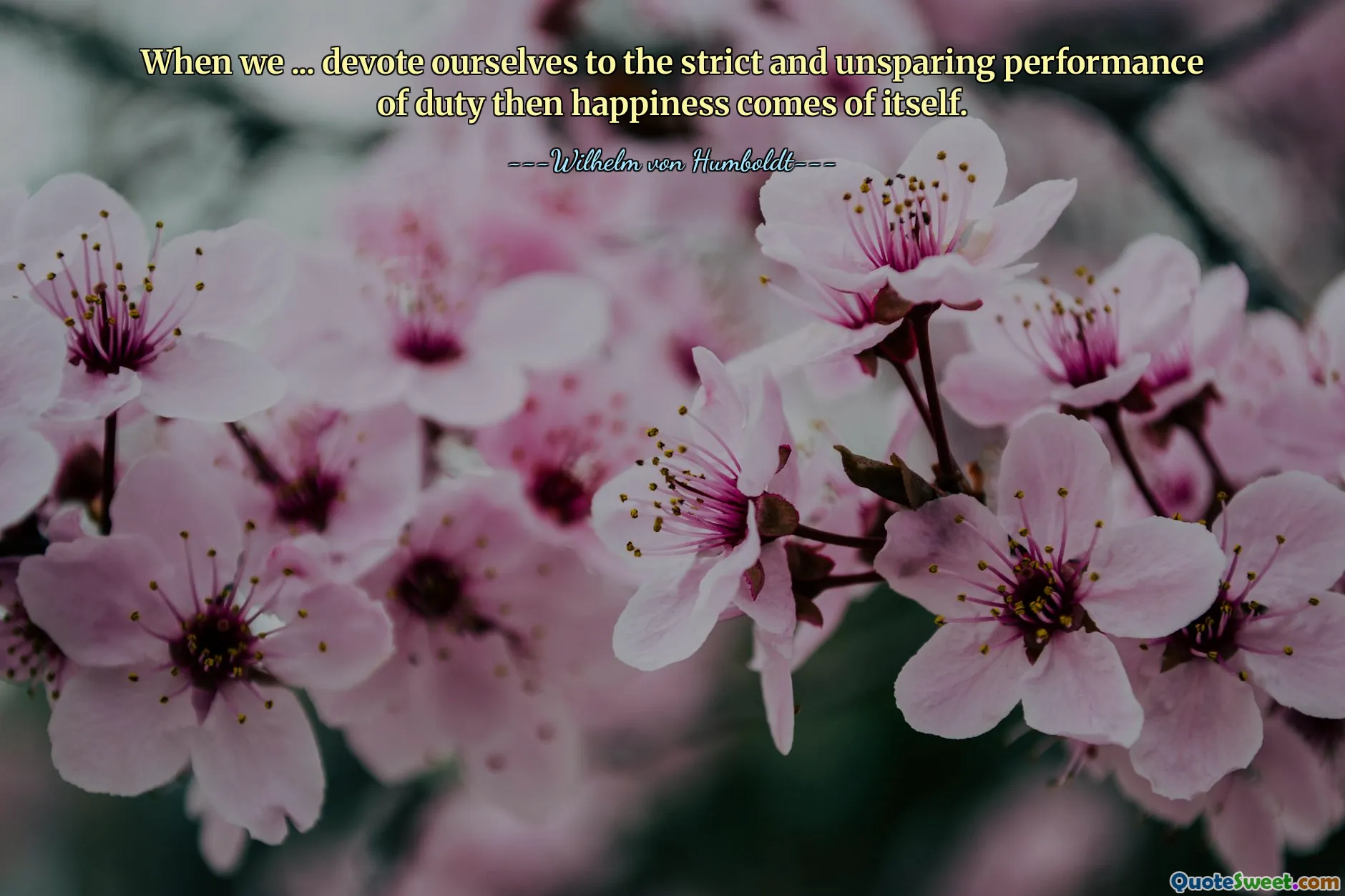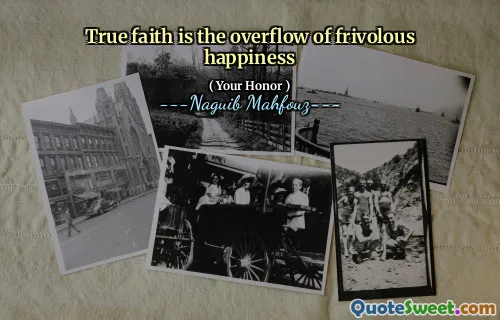
When we ... devote ourselves to the strict and unsparing performance of duty then happiness comes of itself.
This quote by Wilhelm von Humboldt encapsulates a profound truth about the nature of happiness and duty. It suggests that happiness is not a direct pursuit but rather a byproduct of wholeheartedly embracing our responsibilities and performing our duties with diligence and integrity. Often, people seek happiness through pleasure or success, but this perspective reveals that true contentment arises when we commit ourselves to what we ought to do, regardless of immediate gratification.
Devoting ourselves to duty requires discipline, resilience, and a firm moral compass. It calls for selflessness and fortitude, as we sometimes must undertake tasks that are challenging or thankless. However, there's an inherent satisfaction in living with purpose and aligning our actions with our values. Such commitment nurtures inner peace and a sense of fulfillment, which can be interpreted as happiness that "comes of itself."
Moreover, this philosophy encourages focusing on what lies within our control—our actions and responsibilities—rather than chasing elusive external rewards. It cultivates character and a meaningful life by prioritizing accountability and ethical conduct. While this approach may not guarantee constant joy, it promises a deeper, more sustainable sense of well-being that stems from living authentically and dutifully.
In sum, Humboldt’s quote serves as a timeless reminder that happiness is not an end in itself but an incidental gift obtained through earnest dedication to our duties. It invites us to reconsider how we define and pursue happiness and to recognize that fulfillment frequently manifests through steadfast commitment rather than fleeting pleasures.











